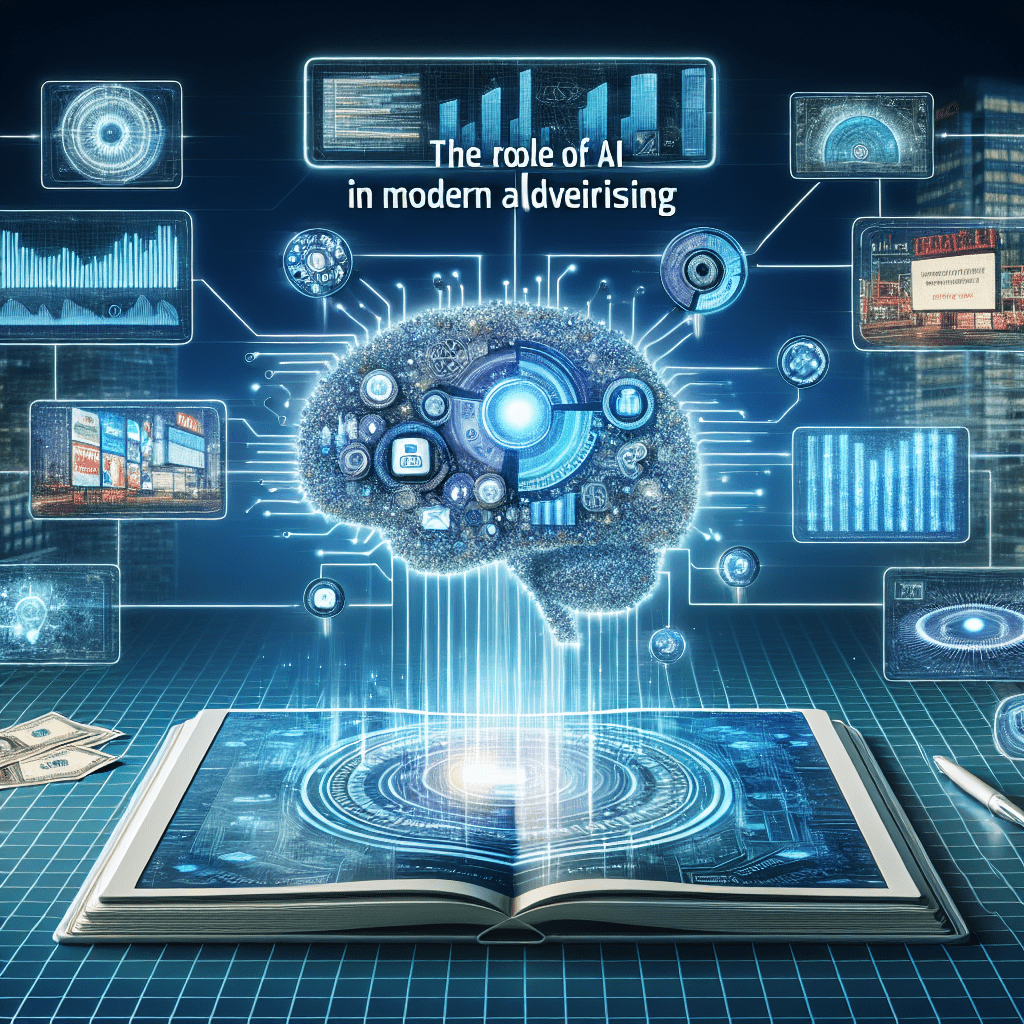
[ad_1]
: Exploring the Pivotal Role of AI in Modern Advertising
Introduction
For marketers all over the world, artificial intelligence (AI) represents a significant revolution. Emphasizing its capability to effectively personalize interactions and streamline complex tasks, AI is completely transforming the advertising industry. This dynamic technology enables advertisers to understand, predict, and efficiently react to customer behavior and preferences. As such, the enormous potential of AI in advertising is forging a new age of customer engagement and business performance.
Understanding Artificial Intelligence in Advertising
Artificial intelligence is a branch of computer science that primarily focuses on the development of smart machines capable of executing tasks necessitating human intelligence. Such tasks include translating languages, recognizing and interpreting speech, making decisions, and identifying visual perception. In advertising, AI is used to collect, analyze, interpret, and learn from vast amounts of data to target and engage potential audiences with the right advertisements at the right time.
The Emergence of AI in Advertising and Its Implications
The advent of digital advertising introduced a realm of opportunities and challenges to the field. With the increased quantity of advertising spaces across digital platforms, efficiently managing, analyzing, and utilizing the available consumer data became more complex. Enter AI: its capacity to swiftly process large volumes of data and deliver actionable insights allows for significant improvements in advertising efficiency. AI enhances various aspects of advertising, from audience targeting and increased personalization to creating more effective advertising content.
Role of AI in Personalized Targeting
Advertising is a game of capturing attention, and with the inundation of ads, consumers are becoming choosier about what constitutes engaging content. AI plays a critical role in addressing this challenge by enabling more focused targeting and personalization. Machine learning algorithms can analyze a customer’s behavior, preferences, and purchasing habits, and use this data to create personalized ads. AI allows advertisers to segment and target their audience more effectively, delivering highly tailored messages to each user.
Empowering Ad Optimization
Artificial intelligence is not just influencing who sees the ads but also how the ads are created. By using AI tools, marketers can determine which elements make their ads more effective. AI can analyze data from previous advertisements to identify the most engaging colors, emotions, themes, and phrases. This information assists marketers in creating optimized, high-quality ads that are more likely to engage their target audience.
Enhancing User Experience
Consumers today expect highly personalized, relevant, and seamless experiences, and AI is helping advertisers meet these expectations. AI-driven chatbots can provide instant customer service, natural language processing can interpret customer sentiments, and predictive analysis can anticipate customer needs. Therefore, AI is crucial in enhancing user experience and building strong consumer-brand relationships.
Leveraging Enhanced Analytics
AI helps in generating more accurate analytics, providing insights about ad performance, campaign success, and consumer behavior patterns. Predictive analytics, conducted using machine learning models, can forecast ad campaign outcomes, making it easier for advertisers to prepare and strategize. Further, real-time analytics allow advertisers to respond to trends and shifts in consumer behavior quickly.
Impact on the Advertising Cost
AI’s capacity to analyze data to identify patterns can generate cost savings. By delivering accurate insights about consumer behavior, AI enables smarter budgeting in ad spending and a better return on advertising investments. Moreover, AI’s ability to automate repetitive tasks reduces operational costs.
Limitations and Ethical Considerations
Despite its numerous merits, AI in advertising is not without its challenges. Concerns about data privacy and invasive advertising abound. Companies must adhere to strict data privacy regulations and ensure ethically-minded data analyses to maintain consumer trust.
Conclusion
In a world where personalization and instant-gratification are the norms, AI has emerged as a game-changing tool in the field of modern advertising. Through its ability to process big data, personalize customer interactions, optimize advertisements, and predict consumer behaviors, AI is reshaping the landscape of advertising. Notwithstanding the ethical dilemmas and limitations, the role of AI in modern advertising is expanding rapidly. As advertisers continue to leverage the potential of AI, the future of advertising is poised to be more interactive, immersive, and intelligent.
[ad_2]







